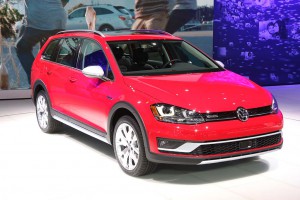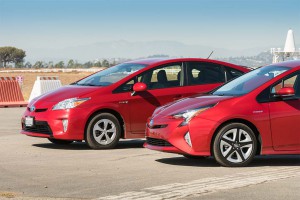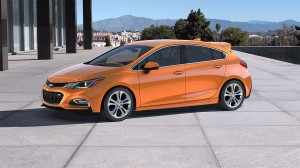A day after reporting a sharp drop in second-quarter earnings, embattled German automaker Volkswagen AG got some good news. Despite its ongoing diesel emissions problems, VW is once again the world’s best-selling automaker – albeit because of a series of unexpected production problems that have been hobbling Japanese giant Toyota in recent months.
Hit by both natural and man-made disasters, Toyota has repeatedly been forced to trim home market production, and the result was a global slide of 0.6% in sales for the first half of 2016, to 4.992 million vehicles. A year earlier, the automaker sold 5.021 million Toyota, Lexus and Daihatsu-branded vehicles from January through June.
Though sales have been down in some markets, notably including the U.S., where it can’t sell its once-popular diesel models, VW managed to deliver 5.116 million cars, trucks and crossovers for the first half of this year, a 1.5% increase.
(VW Q2 earnings hammered by diesel scandal. Click Here for the full story.)
Landing at the top of the global sales charts hands Volkswagen some much-needed good news at a time of broader crisis for Europe’s largest automaker. Barely a month ago it agreed to a $14.7 billion settlement with U.S. and California regulators after admitting it cheated on diesel emissions tests. A federal judge in San Francisco this week approved the settlement.
But VW still has plenty of legal challenges to work through. The U.S. deal only covers the maker’s 2.0-liter turbodiesel, with a separate settlement still in the works for a higher-end 3.0-liter engine. Meanwhile, criminal investigations are in process in the U.S. and Germany. VW has promised to compensate American dealers for losses and it is facing similar claims from investors.
The maker is describing as “regrettable” a $176 million fine levied by the State of Washington as a result of its cheating on diesel emissions. And it faces lawsuits filed last week by New York and two other states.
After setting aside about $19 billion in its 2015 earnings to cover the scandal, VW’s bottom line has continued to take a hit, as shown by the 12% drop in operating income for the second-quarter of 2016. And its luxury arm, Audi, now says it will likely come in “slightly below” its earnings targets for the full year.
(US July sales expected to be flat, but industry still on another record pace. Click Here for more.)
Toyota, which is set to release its own earnings report in the coming days, has been facing its own problems. And, like VW, they cover a multitude of problems: a slide in production and subsequent dip in sales chief among them.
The year got off to a bad start when an explosion at a key steel supplier disrupted production at a number of Toyota plants. That was followed, in April, by a series of earthquakes in Southern Japan that interrupted production by a number of other suppliers. Other parts production issues followed.
As a result, home market output has been repeatedly set back behind plan. Toyota has the highest share of its production based in Japan of any of the top-tier Japanese makers, though it did trim back a bit after the devastating earthquake and tsunami that hit the northern part of Japan’s main island in 2011.
That disaster temporarily knocked Toyota out as global sales king-of-the-hill, General Motors briefly regaining the lead it had once held for a consecutive three-quarters of a century. This time, GM is nowhere close to being able to take advantage of Toyota’s problems. It saw global sales decline for the first half by 1.2%, to 4.76 million, in part due to a U.S. strategy to pull back from low-profit fleet business.
Whether Toyota can catch back up to VW during the second half is far from certain. The maker’s production lines are running at normal pace and, in some cases, accelerating output to recover earlier delays. But it has other challenges.
It’s Prius model, long the world’s best-selling hybrid, has lost momentum in the wake of the slump in fuel prices – despite the launch of an all-new version of the gas-stingy model for 2016. Two of its other main global models, the midsize Camry and compact Corolla, have also been struggling.
Under former CEO Martin Winterkorn, Volkswagen had set a target of becoming the world’s largest automaker by 2018. It is far from certain it can maintain its current lead until then, especially if it can’t fix its problems in the U.S. anytime soon. But Toyota will have its own challenges to deal with, so the longer-term outcome in this global race is far from certain.
(Grand jury looking into Fiat Chrysler sales practices. But could other automakers be caught in the net? Click Here.)



